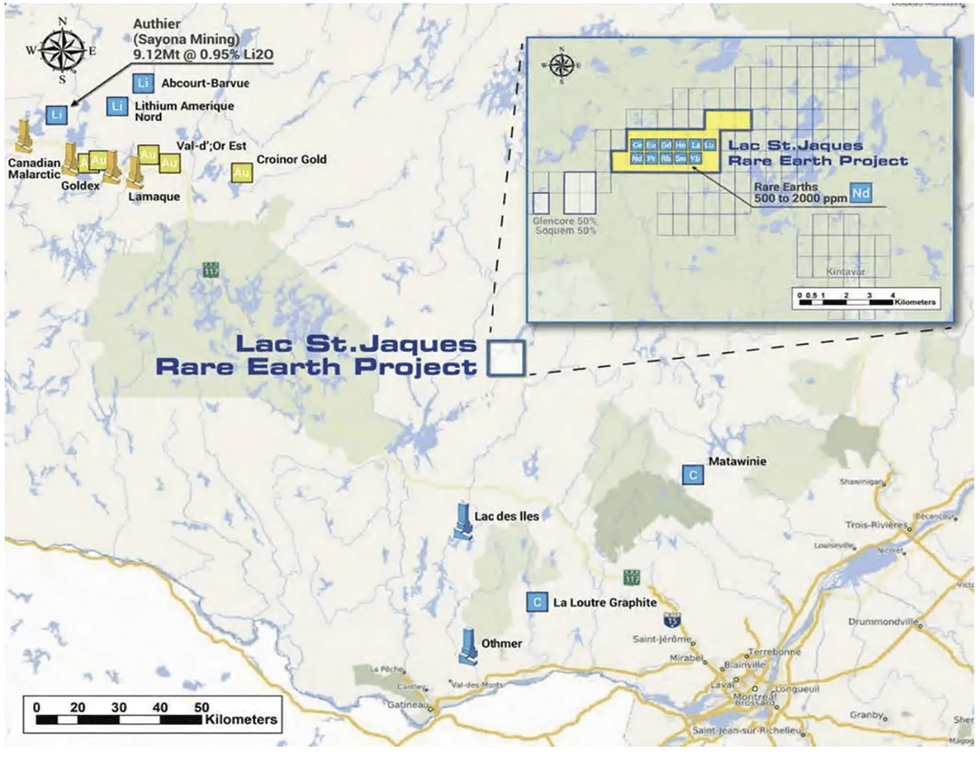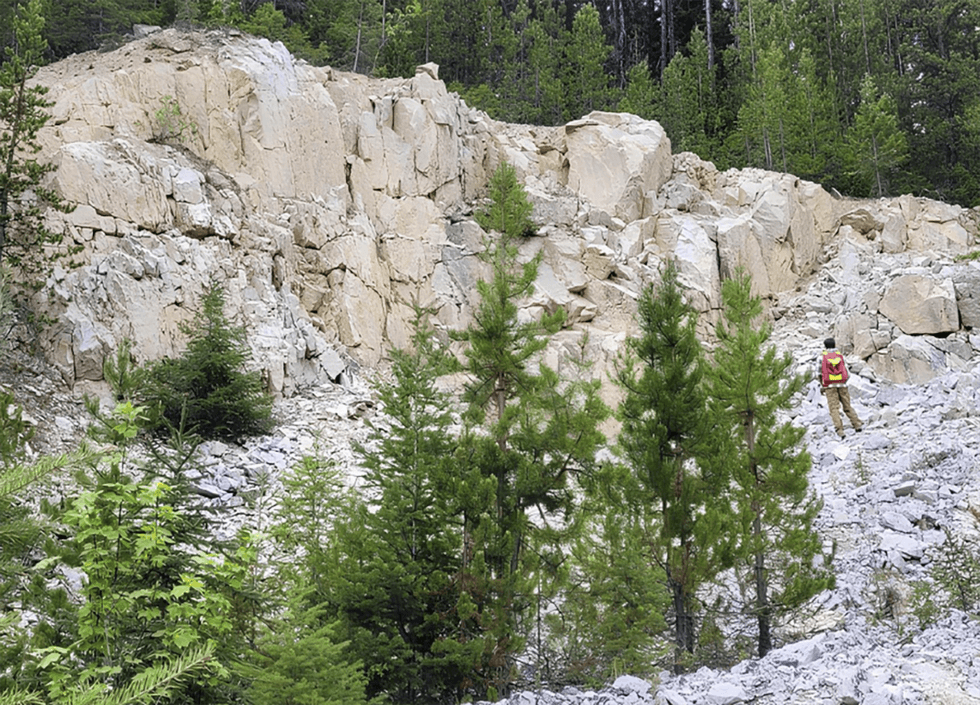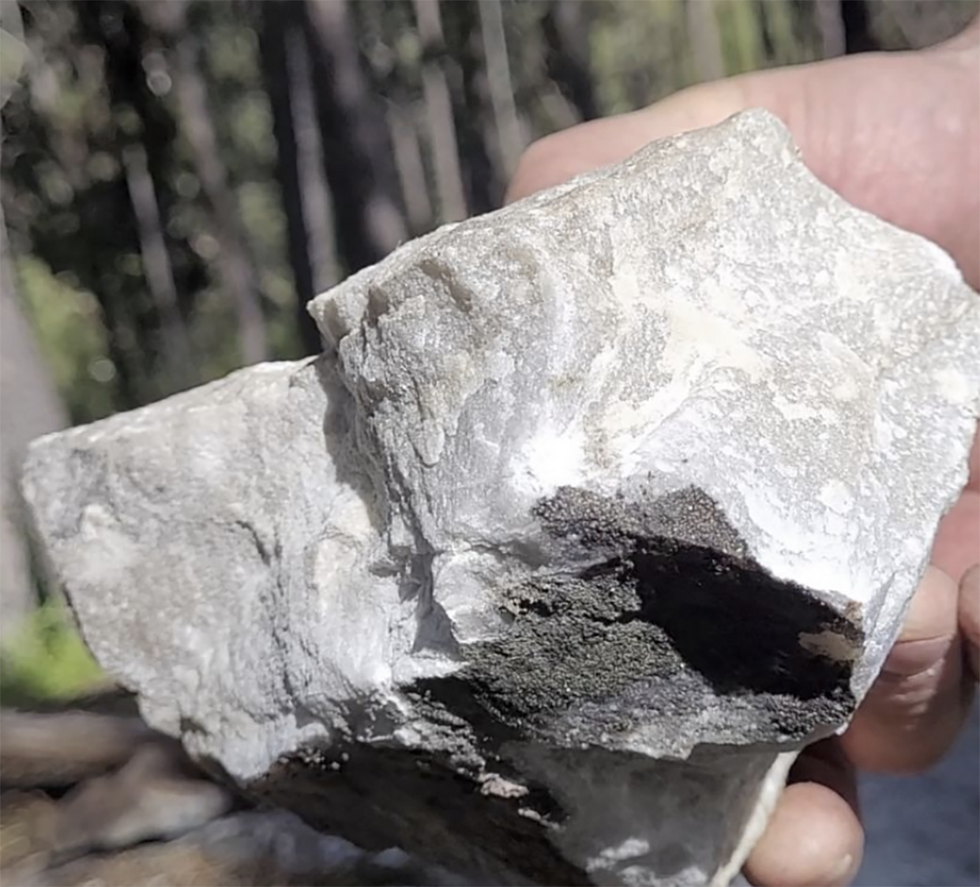Investor Insight
Troy Minerals’ clear strategy for growth, driven by two potentially near-term high-purity silica projects and a diversified exploration portfolio for critical minerals, makes the company an investment opportunity worth keeping a close eye on.
Overview
Troy Minerals (CSE:TROY;OTCQB:TROYF;FSE:VJ3) is a rapidly emerging player in the critical minerals space, focusing on the development of high-purity silica and other essential materials for the clean energy transition.
The company’s diverse portfolio is designed to capitalize on the increasing demand for raw materials needed in high-growth industries such as renewable energy and semiconductors. At the forefront of its portfolio are two high-purity silica projects: Table Mountain in British Columbia and the Tsagaan Zalaa project in Mongolia. These projects were acquired through the strategic purchase of CBGB Ventures in September 2024. Both projects are being targeted for near term production, with Tsagaan Zalaa targeted to come online in 2025 and Table Mountain in 2026. These acquisitions align with Troy Minerals’ strategic goal of becoming a key player in supplying critical minerals for the global energy transition.
Sample high-purity silica
In addition to its high-purity silica assets, Troy Minerals is also making significant strides in vanadium and rare earths exploration, with two additional projects located in Wyoming, USA, and Quebec, Canada. These projects provide further diversification and enhance the company’s exposure to critical minerals that are vital to high-growth industries, ranging from aerospace to energy storage.
The company’s assets are strategically positioned in regions with favorable access to infrastructure and proximity to large consuming markets like the United States and China. Troy Minerals is committed to leveraging these assets to unlock significant shareholder value through the successful exploration, development, and eventual production of critical minerals.
High-purity silica is a crucial mineral for the clean energy transition, particularly in the production of solar panels, semiconductors and high-performance glass. The purity and quality of the silica deposits at Troy’s assets make them ideal for these high-tech applications. By 2030, the high-purity silica market is projected to grow to US$104.34 billion, driven by increasing demand for photovoltaic cells used in solar panels, as well as advancements in electronics and fiber optics.
The global shortage of high-purity silica, exacerbated by supply chain disruptions and geopolitical tensions, has created an urgent need for new suppliers. Troy Minerals is well-positioned to advance and develop its projects to help meet this demand by targeting near-term production on both of its silica projects which have high-grade silica

In addition to its focus on high-purity silica, Troy Minerals maintains a diversified portfolio through its vanadium and rare earth elements (REE) assets. These minerals are essential for various industries, including electric vehicles (EVs), renewable energy storage and advanced electronics. The company’s Lake Owen project in Wyoming is prospective for vanadium, while the Lac St. Jacques project in Quebec is focused on REE, particularly neodymium and praseodymium.
Vanadium is critical to produce vanadium redox flow batteries (VRFBs), a promising energy storage technology that offers long-term stability and scalability for renewable energy systems. REEs, on the other hand, are used in the production of permanent magnets, which are integral to wind turbines, EV motors and various electronic devices.
Company Highlights
- Troy Minerals acquired CBGB Ventures in September 2024, securing two flagship high-purity silica projects in British Columbia and Mongolia.
- The Tsagaan Zalaa project in Mongolia is being targeted to commence high-purity silica production by 2025, thereby positioning the company as a key supplier for solar and semiconductor industries.
- The Table Mountain project in British Columbia is being targeted to begin high-purity silica production by 2026, with a 24-month development timeline.
- High-purity silica, similar to the company’s projects, is critical for solar panel production, semiconductors, fiber optics and high-performance glass.
- The company also maintains an exploration portfolio of critical mineral assets, including vanadium and REE, in tier 1 jurisdictions.
Key Projects
Tsagaan Zalaa Project (Mongolia)

The Tsagaan Zalaa project, located near the China-Mongolia border, is a near-term high-purity silica asset that is being targeted to commence production by 2025. The project’s proximity to key consuming markets, such as China, Japan and Korea, provides significant logistical advantages for the transportation of silica.
Tsagaan Zalaa’s silica deposits boast purity levels above 99 percent, making them suitable for advanced technological applications such as solar panels, semiconductors and fiber optics. The project’s minimal overburden and low strip ratio make extraction cost-effective, further enhancing its economic potential. Given the global demand for high-purity silica, this project has the potential to generate significant revenue for Troy Minerals.
Table Mountain Project (British Columbia)

The Table Mountain project, located in British Columbia, Canada, is another high-purity silica asset with near-term production potential. Covering 1,698 hectares, the project is strategically positioned with access to key infrastructure, including roads, power and natural gas, making it a logistically attractive asset for North American markets.
The high-grade silica at Table Mountain is ideal for applications such as solar panels, high-performance glass and electronics. The project is being targeted to begin production by 2026, following a 24-month development timeline. Given the increasing demand for high-purity silica in North America, the Table Mountain project could play a critical role in reducing reliance on imports and enhancing the region’s supply chain resilience.
Lake Owen Project (Wyoming)
The Lake Owen project, located 50 km southwest of Laramie, Wyoming, is an exploration-stage asset focused on vanadium and titanium. The project spans 1,932 acres (782 hectares) and is part of the Proterozoic Lake Owen mafic to ultramafic layered intrusive complex, which is known for its rich vanadium and titanium deposits.
Lake Owen is benefiting from the US Geological Survey’s “Large-scale Earth MRI” program, which provides valuable geological insights and cost savings for exploration. The project has significant potential for semi-massive to massive titanomagnetite deposits with high concentrations of vanadium pentoxide and titanium dioxide. The exploration potential for platinum group elements and gold further adds to the project’s attractiveness.
Lac St. Jacques Project (Quebec)
The Lac St. Jacques project, located 250 km north of Montreal, Quebec, is an REE exploration asset. The project spans 2,889 acres (1,169 hectares) and is easily accessible via roads and proximity to hydro power lines, offering cost-effective logistics and sustainable energy options for future operations.
The rare earth mineralization at Lac St. Jacques is associated with pegmatitic syenite and granite intrusives. The project’s carbonatite deposit is rich in light rare earth elements, particularly neodymium and praseodymium, which are essential to produce permanent magnets used in EV motors and wind turbines. Samples from recent drilling have shown promising concentrations of REEs, with results indicating between 500 and 2,000 parts per million of neodymium and praseodymium.

Management Team
Rana Vig – President, CEO and Director
Rana Vig has more than 30 years of business experience, helping launch five business ventures in the private sector. He has been involved in publicly traded companies since 2010, and from 2011 to 2016 he was the president of Musgrove Minerals, an Idaho-focused gold and copper mining exploration company. From 2013 to 2016, he was the chairman and CEO of Continental Precious Minerals, a TSX senior board listed mining exploration company with a focus on advancing one of the largest uranium deposits in the world located in Sweden.
In November 2017, he received the the Senate 150th Anniversary Medal, awarded to top Canadians actively involved in their communities who, through generosity, dedication and hard work, make their hometowns and communities, a better place to live.
Norman Brewster – Director
Norman Brewster’s mineral industry career includes serving on various company boards, financing and developing the Aguas Tenidas Mine in Spain, and negotiating the purchase of the Condestable Mine in Peru. He also led the committee in reviewing the successful acquisition of Iberian Minerals by the Trafigura Group in an all-cash takeover valued at around $497.8 million.
Gurdeep Bains – Director
Gurdeep Bains is a chartered professional accountant. He received his chartered accountant designation from the Institute of Chartered Accountants of BC in 2003 and in 2004 graduated from Simon Fraser University with a Bachelor of Business Administration. From 2000 to 2005, he was a senior auditor, assurance services at KPMG.
From 2005 to 2014, Bains was with Canaccord Genuity as vice-president, internal audit and financial analysis where he was involved in the company’s global expansion by performing the due diligence and integration of $850 million in acquisitions in Canada, US, UK, Australia and China. From June 2014 to October 2017, he was the CFO at OK Tire Stores, an automotive company with over 330 locations across Canada. From October 2017 to March 2019, Bains was CFO at Zenabis, contributing in both finance and business development roles.
Regina Lara Yunes – CFO
Lara Yunes is a chartered professional accountant with a Bachelor of Technology in accounting from the British Columbia Institute of Technology. She is currently a financial reporting manager at Treewalk, providing accounting, financial reporting and compliance services to publicly listed firms. Prior to this, she worked at Smythe LLP as an accountant, offering audit and tax services to both private and public companies.
Credit: Source link




